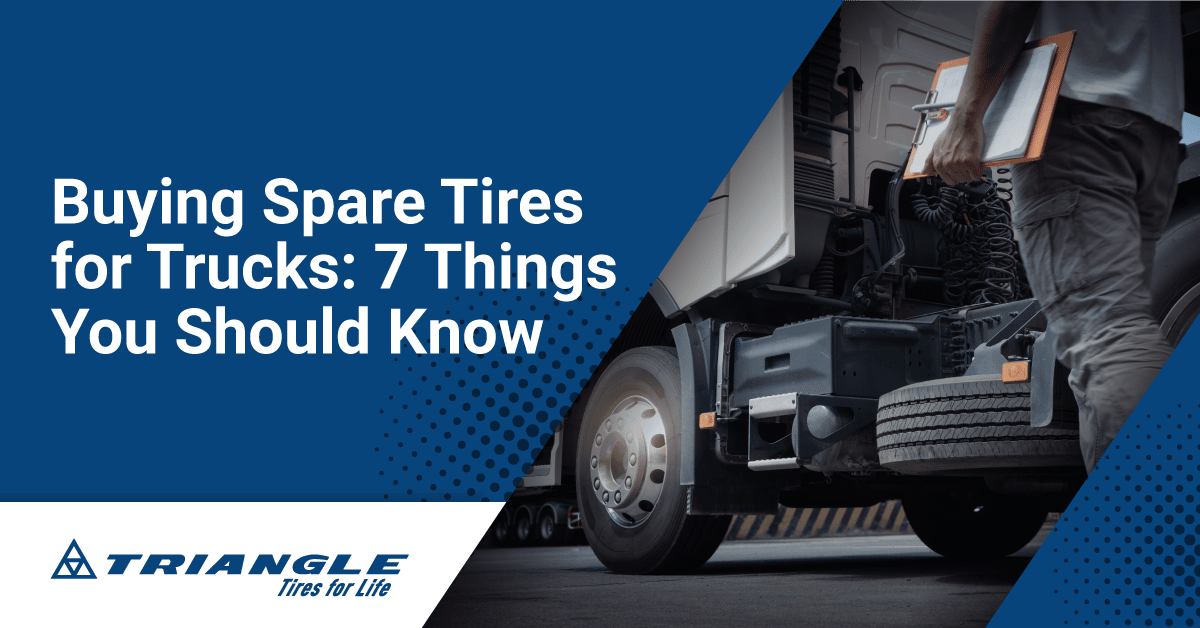
One of the most common reasons vehicular accidents happen in the Philippines is a mechanical defect. These defects typically involve a lack of maintenance and other issues, like flat tires, that can leave you stranded in the middle of nowhere.
If you have spare tires, you can save yourself the inconvenience of moving your vehicle to a local shop, especially in the city. Motorists like truck drivers and delivery couriers can benefit from learning more about spare tires since their job heavily relies on transporting goods.
7 Things You Should Know When Buying Spare Tires for Trucks
Spare truck tires revolve around essential factors and buying tips.
1. There are three main types of spare tires
Tires come in various kinds, but these are the three main types:
-
Full-size spare tires
The most versatile type of spare tire, a full-size tire is an identical unit of a car’s four wheels. You can benefit from maximizing its rubber usage and longevity, but it takes up the most space compared to others.
-
Compact or donut tires
If size is an issue, compact tires or “donuts” is the better choice. A major upside about donuts is that they’re small, allowing them to fit in more compact vehicles. However, because they’re smaller than full-size spare tires, they can only go at low speeds, usually not exceeding 80 km/h.
-
Run-flat tires
As an alternative to conventional spare tires, run-flat tires are helpful even after getting punctured. These tires have reinforced sidewalls, allowing them to operate with little tire pressure.
Like donuts, you have to drive them under 80 km/h in case of a puncture, but their most significant advantage is that you don’t have to stay in dangerous spots like the freeway to replace your tires. You can take your time to drive to the nearest auto shop and have experts repair them.
2. Your spare tire should match your regular route
Before you buy spare tires, consider the route you regularly take. Different tires work best in specific areas. If you drive a truck, you want a sturdy extra truck tire that can handle different terrains like the TR689A.
On the other hand, if you drive a car, a compact tire may be the best option to balance size and utility, especially if you live in an urban area with many repair shops.
If you’re unsure what to get, you could choose full-size spares because of their longevity. They are quality tires that go beyond temporary use and can last for extended usage.
3. Compact spare tires do not drive like standard tires
You don’t want to drive compact spare tires like standard ones because they have little to no thread. This vulnerability results in exposure to road hazards. Plus, compact spares tend to rotate faster to keep up with the car because of their small size.
Overexerting the tires can lead to disastrous accidents, so consider these factors before you buy.
4. You must understand how long you can use a spare tire
When buying spare truck tires, it would be best to know how long they will last. If you’ve had a spare tire on your truck for years without ever using it, most likely, it’s no longer usable. As part of regular maintenance, you may consider rotating your spare tires, so they don’t sit idle for too long.
5. Know how far you can drive using the spare tires
Knowing how far you can drive with a spare tire is essential because it will help you decide whether to buy one and, if so, which size to buy.
In general, you can drive for up to 80 kilometers on a compact spare tire. You can usually go more than that for full-size spares, but it’s still a good practice to replace your tires as soon as possible. That is most true if your reserve is not from the same manufacturer as your other tires.
That said, how far you can drive with your spare tire depends on your vehicle type and the tire’s size. The more weight the spare tire can carry, the farther you can go without damaging your vehicle. For trucks, the TR678 is a great option. Besides being a sturdy tire, it also has low fuel consumption and excellent traction.
6. Always check tire pressure
Tires must always have the proper pressure. You should avoid driving on a tire with too much pressure that can deform the tire’s shape. Conversely, driving with low-pressure tires might result in overheating since that condition creates friction between the road and the tire’s surface area.
For these reasons, you must conduct tire pressure check-ups. Spare tires can only temporarily help your vehicle move, so you want to avoid running into other issues as much as possible.
Read: Tire Pressure Defined: From Passenger Cars to Construction Heavyweights
7. Understand your needs
Before buying spare tires, take the time to know the terrain, weather conditions, travel distance, and vehicle type. Trucks require heavy-duty tires with excellent traction and adhesion properties to ensure no accidents occur.
No Need for Speed
When it comes to spare tires, you want quality and consistency. Spare wheels can bail you out when your original tires have defects. You only need to understand the abovementioned factors to avoid costly issues caused by buying the wrong tires.
If you’re looking for quality tires, Triangle Tires can help. We have a wide array of tires—from passenger cars and light trucks to heavy equipment vehicles—available for delivery at an affordable price. Browse our tire catalog, or contact us today!